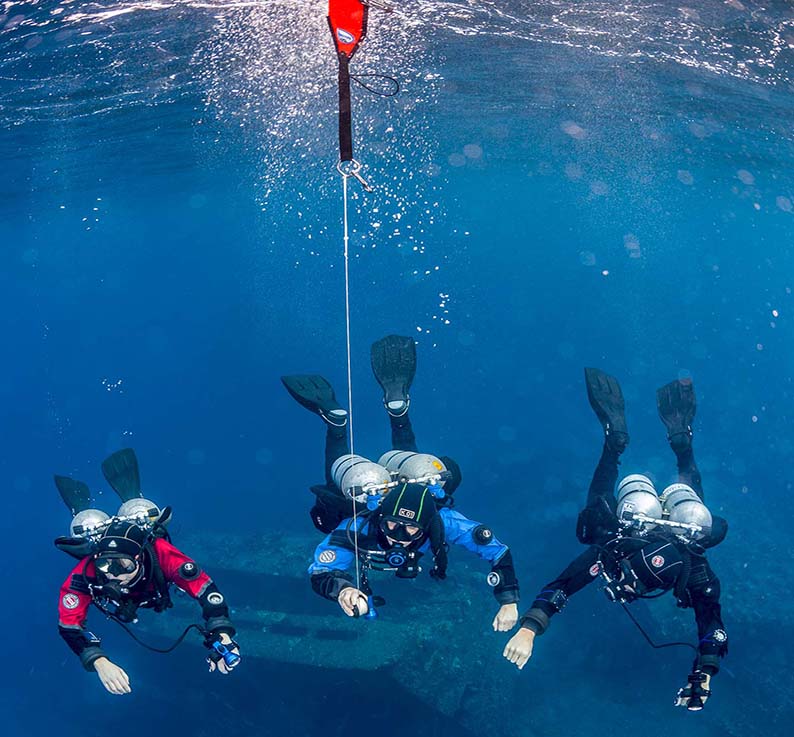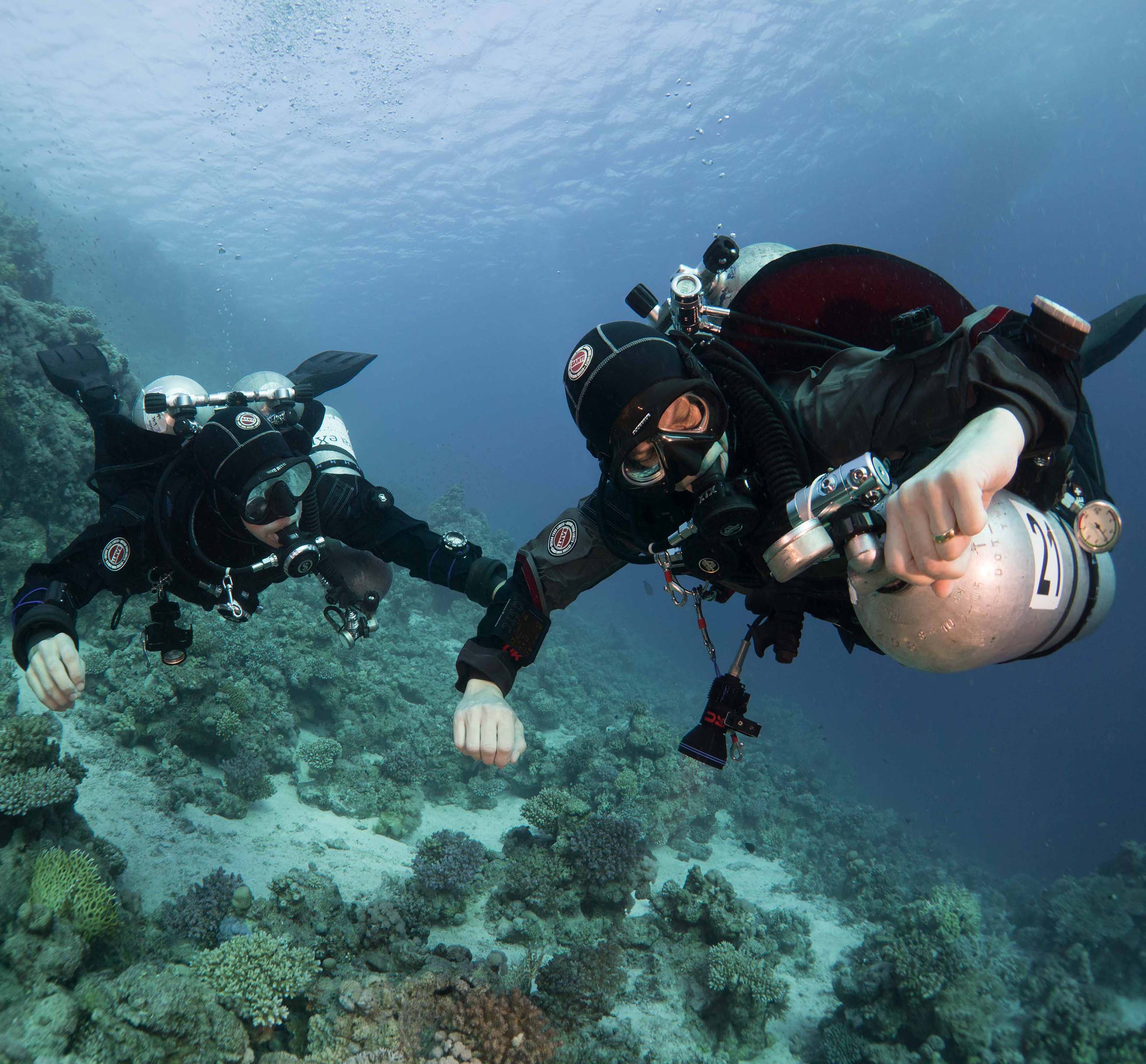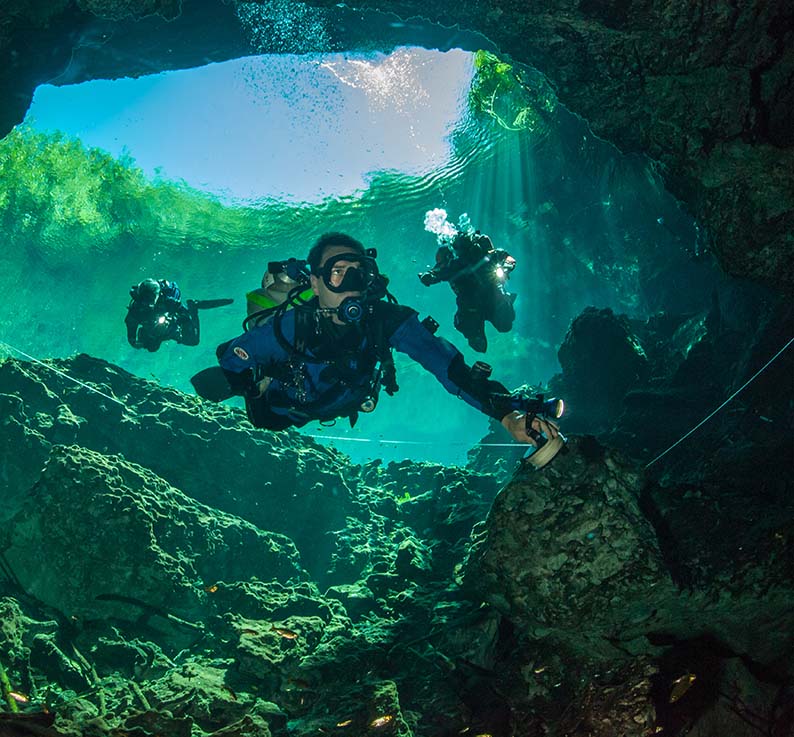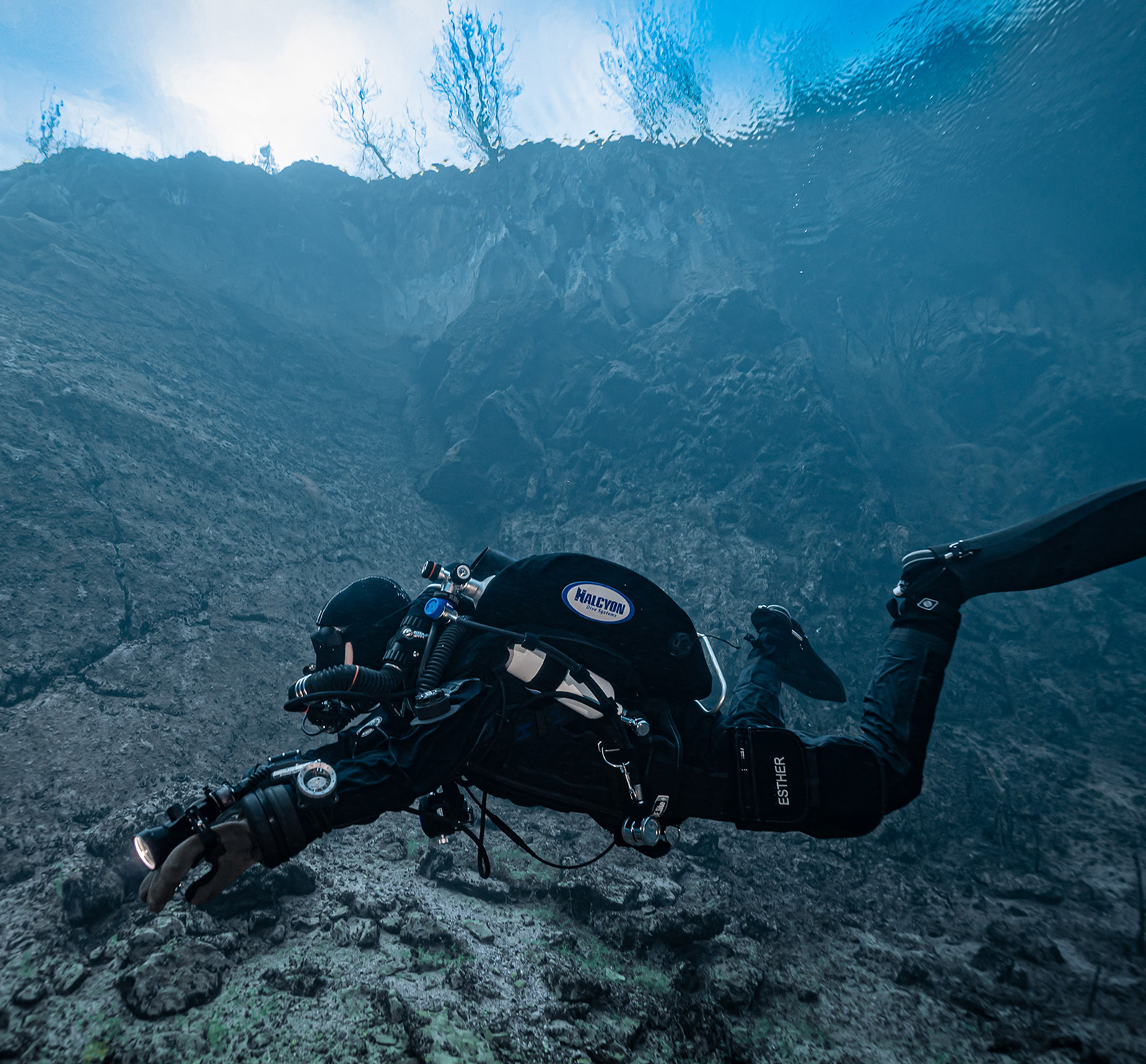GUE Technical Fundamentals
GUE TECHNICAL FUNDAMENTALS
WHY TAKE THIS COURSE?
The GUE Technical Fundamentals course is designed for more experienced divers to enhance their skills in preparation for entering GUE’s technical, rebreather, or cave programs.
Many divers see the course as a ticket to participate in GUE’s more advanced diving, projects, and activities. Higher entry requirements for the GUE Technical Fundamentals course ensures all students who sign up are working towards obtaining a high level of competency in both their personal and team diving skills.
For many non-GUE divers, the Fundamentals program is an “aha!” moment where everything falls into place. The standardized equipment configuration and standardized procedures are only a small part of the big picture. Realizing how a team-oriented approach can free up resources and increase situational awareness that can be used to maximize safety, efficiency, and fun is often a life-changing moment for Fundamentals students, and they walk away from the course with a completely new approach to diving.
Historically, the Fundamentals course was created to make sure that divers who showed up for more advanced training in GUE’s cave and tech courses were not struggling with basic diving skills. A solid diving platform is based on balance, trim, buoyancy, and propulsion techniques. It is pointless to begin more advanced training before mastering these basic aspects of diving. It will only lead to task loading, stress, and poorly-learned skills. Divers who struggle with personal skills will not be able to contribute to the team, nor will they have the required level of situational awareness needed in cave or tech training.
WHO IS IT FOR?
The GUE Technical Fundamentals course is aimed at experienced divers seeking GUE technical, rebreather, or cave training.
WHAT WILL I LEARN?
Course outcomes include, but are not limited to: GUE equipment configuration and use, trim and buoyancy, propulsion techniques including backwards kick, valve management (the course can only be done using double tank configuration), gas sharing, backup light deployment, basic rescue introduction, and SMB deployment. The course will include ascent training to prepare you for technical training.You will receive access to GUE’s online learning platform, which you can utilize before the in-person portion of the course. This online learning system will adapt to you, ensuring it focuses on teaching you what you don't already know. You can learn at your own pace, so all students will reach a level of mastery of the material. Your time with the instructor can then be spent covering the practical elements of diving.
This course will supplement training that divers may have already received and will give them more confidence in their basic skills even if they do not desire to go on for more advanced training. The course also includes the theory and use of nitrox.
Applicants for a GUE Fundamentals program must:
- Be a minimum of 16 years of age.
- Be physically and mentally fit.
- Be a non-smoker.
- Be able to swim.
- Obtain a physician’s prior written authorization for use of prescription drugs, except for birth control, or for any medical condition that may pose a risk while diving.
- Hold a certification from a recognized training agency to dive to 100 ft/30 m or a GUE Deep Primer certification.
- Have conducted at least 75 non-training dives following completion of autonomous scuba diver certification. At least 25 of these must have been at a depth of at least 70 ft/21 m.
- Have conducted at least 25 non-training dives in a double tank configuration or have conducted 15 non-training dives utilizing doubles following completion of GUE Doubles Primer certification.
- If using a drysuit during the course, have conducted at least 15 non-training dives in a drysuit or have conducted 10 non-training dives utilizing a drysuit following completion of GUE Drysuit Primer certification.
- For a full list of course prerequisites, click here.
At the instructor’s discretion, GUE Performance Divers and GUE Basic Fundamentals divers may have a portion of their training counted toward GUE Technical Fundamentals qualification.

Passing the GUE Technical Fundamentals class opens up many paths for a certified diver, especially if it is your gateway GUE course. From here, you can enroll in GUE's advanced recreational classes enhance your fundamental skills, from ascent control and rescue skills to managing additional dive gear and tasks.
And, of course, a GUE Technical Fundamentals certification means that additional non-class diving experience, you will be able to progress into GUE's technical, cave, or CCR courses.
TAKE THE PATH TO TECHNICAL DIVING
TECHNICAL DIVER LEVEL 1

CAVE DIVER LEVEL 1

CCR FUNDAMENTALS





